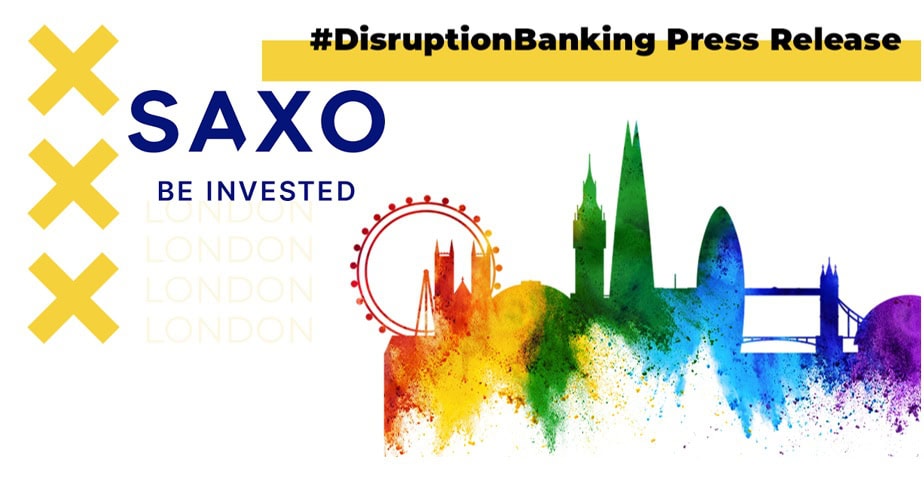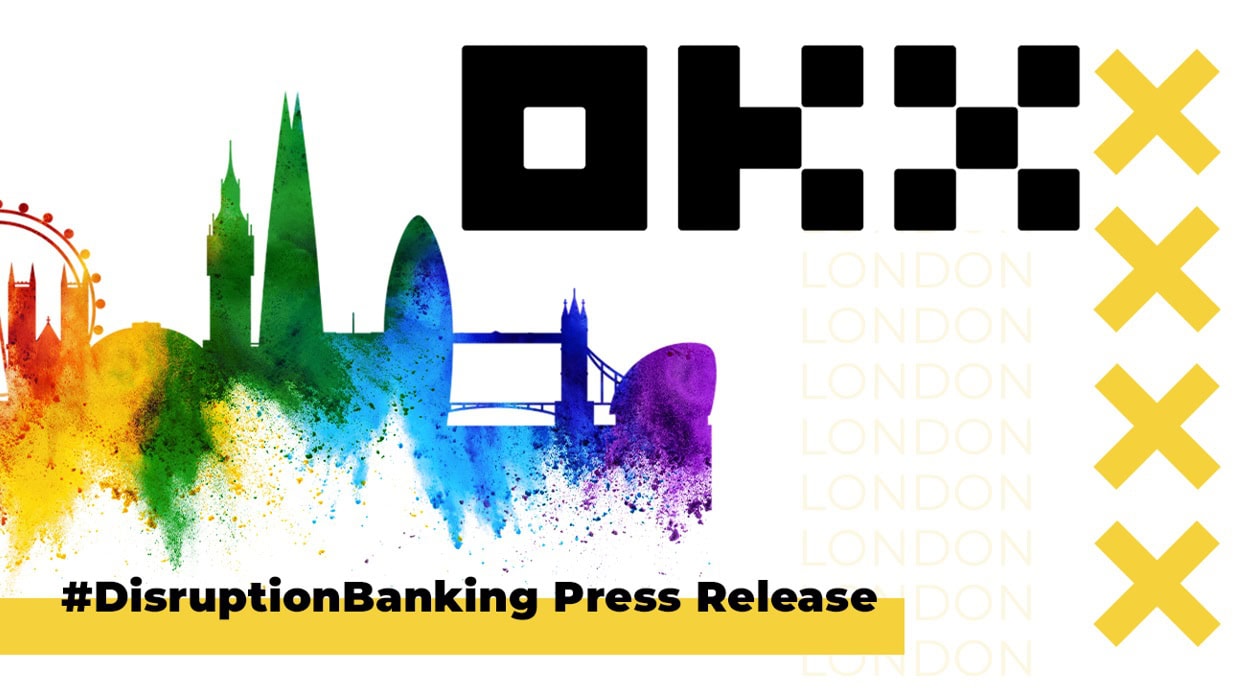- 55% of survey respondents opting to save in gold due to distrust of banking system
- Gold is up 5% since March 2021 trough whilst other alternative currencies falter – Bitcoin’s value down 42% since April high
68% of savers no longer trust banks to protect their wealth and are searching for alternative currencies and stores of value, according to research from Glint*, the global gold-based payments system that allows clients to instantly and securely save, spend and share real gold.
Glint explains that the trend for consumers and savers looking to store their money away from fiat currencies, such as USD and GBP, and in alternative currencies, including cryptocurrencies or gold, is accelerating.
Glint’s research indicates that the primary reason for consumers saving in gold is due to distrust of the banking system (55% of savers indicated this was their main motivation). Other major motivations for saving their wealth in gold include saving for retirement (14%) and to fund future investments such as property purchases (8%).
Glint adds that alternative currencies have seen considerable growth over the last year. The price of gold has experienced a resurgence in recent months, rising 5% since March 2021 – although it remains lower than its August 2020 peak. Many cryptocurrencies have seen huge growth over 12 months, including Bitcoin (260%) Ethereum (800%), although this has been curtailed with recent market collapse – for example, Bitcoin’s value has dropped by 42% since its April peak.**
The growth of alternative currencies is further evidenced by the increase in clients and users. Glint has seen a 30% increase in new clients looking to spend and save gold over the last six months –hitting 81,560 clients in May, up from 62,900 in December 2020.
Coinbase, one of the largest cryptocurrency exchanges, experienced a surge in Q1 2021, with the number of monthly transacting users more than doubling during the quarter, from 2.8 million to 6.1 million. The exchange now has 56 million users.
Jason Cozens, Founder & CEO of Glint, says: “This research demonstrates the scale of the monetary system’s failure to appeal to large swathes of consumers. Traditional financial institutions have not been able to cater to changing demand and for many of us, our trust hasn’t been rebuilt since the catastrophes of the financial crisis. Consumers and savers alike are increasingly turning their backs on the current monetary system and searching for alternatives ways to spend and save their money that won’t put their wealth or purchasing power at such long-term risk.
“In this climate of rapidly rising inflation and record low interest rates, consumers and savers are punished from entrusting their wealth to banks. The situation has been exacerbated by the continuation of quantitative easing and the extraordinary levels of government borrowing –the UK borrowed an additional £300bn during the Covid-19 pandemic and President Biden recently announced a $6tn Budget taking federal spending to its highest level since World War II – these factors have combined to devalue our cash, savings and fiat currencies by around 90% over the last 50 years. Clearly, alternatives to the current system are absolutely vital.
“Whilst gold can decline in value, it has proven its reliability over time and many still see it as the premier store of value. Although the first quarter of 2021 saw a surge in the popularity of cryptocurrencies, the volatility of these assets should act as a warning of their viability as a long-term store of value or means of exchange.
“The looming threat of increased regulation and the several collapses the market has experienced recently should act as a major wake-up call to any consumers considering entering the crypto market. The extreme volatility of these assets has been demonstrated by the market impact of Elon Musk’s tweets, first in sending prices soaring to record highs when Tesla purchased $1.5bn worth of Bitcoin and then sent provoking a plummeting in value with tweets hinting the company may exit the market just a couple of months later – this crash was further compounded by another Chinese announcement banning cryptos, with similar noises emerging from South Korea too.
“The message from consumers is clear; they want reform of the monetary system and more control over their finances. Although the establishment of Central Bank Digital Currencies (CBDCs) may appear as though consumers are set to be gifted with greater control, as these assets are tied to fiat currencies, and therefore subject to the same factors which erode the value of paper money. It’s likely that CBDCs, alongside increased regulation, are a move by central banks to push cryptos out of mainstream use. We’re at a pivotal moment in deciding the future of money; many believe true alternatives such as gold as an everyday currency is the future, rather than incredibly volatile cryptos or CBDCs which will continue to punish consumers.”
In May 2021, Glint announced a joint crowdfunding round in the US (through Republic) & UK (also available to the rest of the world through Seedrs) – the first time that the two platforms have collaborated on a dual crowdfunding. This round has exceeded its £2m target, raising almost £2.3m with two weeks remaining.
*Survey of over 300 Glint clients in the UK, US, Single European Payments Area and other countries.
** Gold, Bitcoin and Ethereum prices correct as of 18th June 2021.
ENDS
About Glint
Glint Pay Services Ltd. (glintpay.com) is a fintech company, based in London, Boulder (US) and Tokyo, that uses gold as an alternative global currency to enable its clients instantly to buy, sell, save, spend and now, share their physical gold and other currencies, through the Glint Mastercard® and Glint App.
Glint offers no credit facilities, it allows users to transfer, receive and save real gold, which is secured in Brink’s vaults in Switzerland.
The new Glint P2P offer, Glint it!, allows customers to instantly send or receive money, including real, spendable gold and other currencies between Glint account holders. This facility is available as part of the Glint app which can be downloaded to smartphones from Apple’s App Store and Google Play.
Glint is authorised and regulated by the UK’s Financial Conduct Authority which has given permission for Glint to issue electronic money (e-money) and provide payment services (FRN 900657).
Gold is not regulated by the FCA. However, Glint’s clients know their gold is secured in a Brinks Vault in Switzerland. Brinks is insured by Lloyds of London and their policy covers the replacement value of Glint client’s Gold as held in their vault.
The Glint card is issued in the UK by Glint Pay Services Ltd pursuant to licence by Mastercard International Inc.
Glint is a U.S.-based authorized Card Program Manager. Funds are held at Sutton Bank, Member of the Federal Deposit Insurance Corporation (FDIC), in an FDIC-insured account.
Glint Pay Inc. employs effective Anti-Money Laundering (AML), Countering the Financing of Terrorism (CFT), and fraud prevention systems and controls to mitigate and combat risks.
Whilst we strongly believe that gold is the fairest and most reliable currency on the planet, we obviously need to point out that it isn’t 100% risk free. Whilst we have seen a steady increase over time, the value of gold can fall, which means the purchasing power of the customer can also fall.















